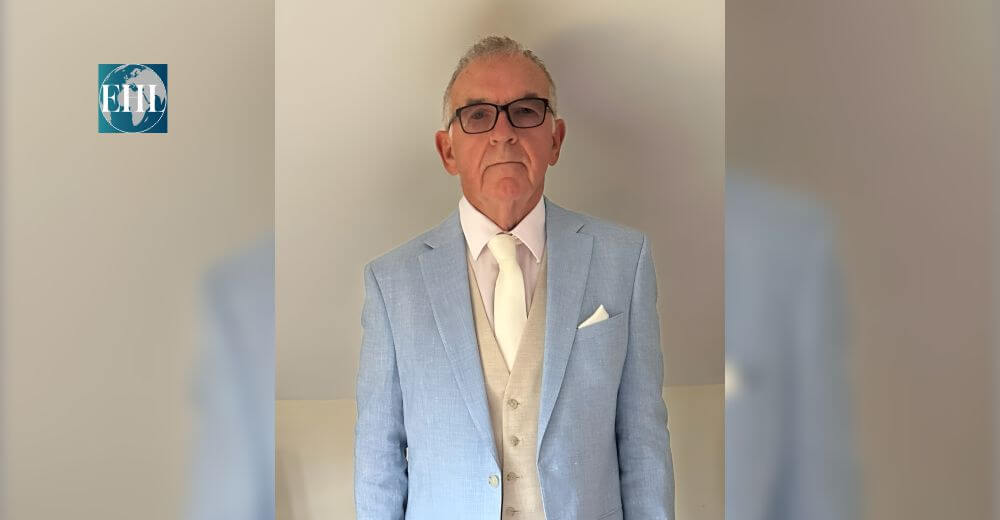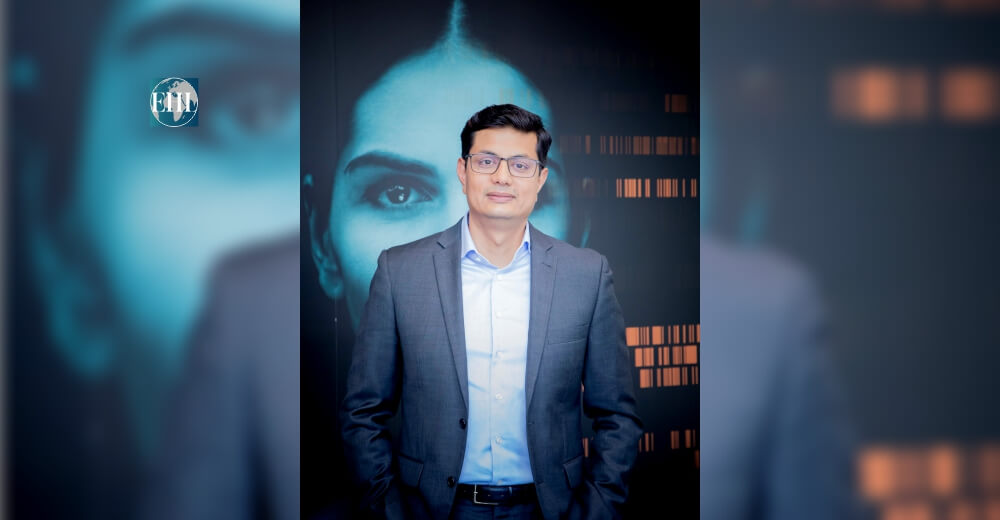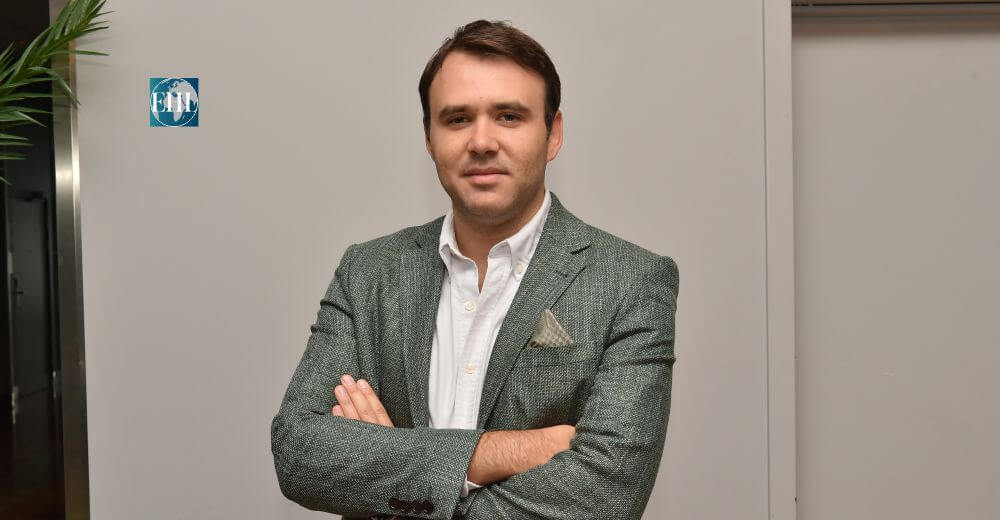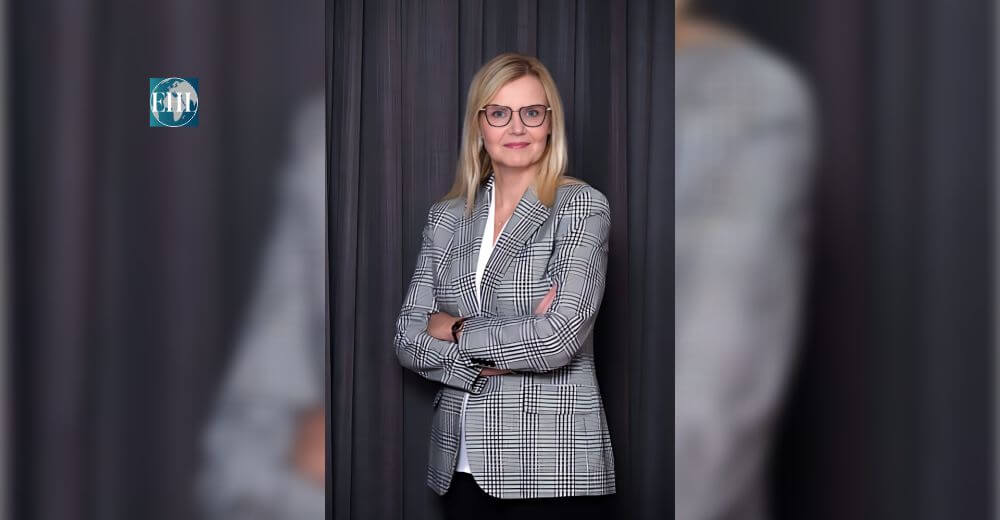“Imagine an AI health coach that tracks your metrics and offers personalized advice in real time,” David Wortley proposes. It’s not just a technological fantasy—it’s a concept grounded in the practical, the innovative, and the deeply human. Recently, technology has made significant strides in healthcare. Devices once limited to counting steps now offer much more. They help us understand our health, improve habits, and manage well-being. For David, this isn’t just a development; it’s a mission. He aims to empower people through innovative technology.
David Wortley, the Speaker of David Wortley FRSA, the CEO and Founder of DigiMed TV and 360in360 Immersive Experiences, is a technologist with a storyteller’s soul. His journey—spanning decades, industries, and continents—is a reflection of his belief in the potential of technology to serve humanity. Whether it’s gamification, wearable technology, or AI-driven solutions, his approach is marked by his ability to translate complex systems into tools that genuinely improve lives and make an impact on public health.
David’s career path, peppered with collaborations and leadership roles, has seen him influencing policy, education, and innovation in healthcare. From his pivotal role in the International Society for Digital Medicine to advisory positions with VR Therapies and Zenith Global Health, he’s not just imagining the future—he’s building it. His work inspires action, fosters collaboration, and, most importantly, puts people at the center of technological innovation.
Let’s read on to explore how David is revolutionizing healthcare through technology, gamification, and personalized well-being!
Shaping a Career in Technology and Health
David’s story begins in a field seemingly distant from healthcare. Starting as an engineer in telecommunications, he quickly realized the world was shifting. “I saw the analog giving way to digital,” he recalls. “Technology wasn’t just changing tools; it was changing lives.” His early years at IBM enhanced his understanding of digital transformation, exposing him to how technology could streamline industries, including pharmaceuticals. Exposure to a barcode-scanning tool for a pharmaceutical company’s supply chain marked the beginning of his fascination with applying technology strategically for human benefit and competitive advantage.
In 1984, he founded his communications technology firm, where he pioneered advanced presentation technologies. His innovative work earned him recognition as the UK’s first Microsoft Center of Excellence for PowerPoint. However, a request from a pharmaceutical company to create an interactive exhibition game changed his trajectory. “They wanted something engaging to educate people about epilepsy,” he shares. “What we developed was more than a game—it was a tool to spark conversations, challenge perceptions, and educate in an engaging way.”
David understood that technology could be used not just to communicate messages but to encourage interaction and deeper understanding. This realization was a turning point, sowing the seeds of his interest in gamification. Over time, this passion grew, culminating in his role as the founding director of the Serious Games Institute at Coventry University. There, he explored how games could shift from entertainment to tools for education, healthcare, and behavior change, paving the way for the broader application of gamified solutions in various industries.
Pioneering Gamification in Healthcare
Gamification might feel like a trend today, but when David entered the field, it was a novel concept. Under his leadership, the Serious Games Institute became a hub for exploring how game mechanics could solve real-world problems. One groundbreaking project involved training paramedics through virtual triage scenarios. “The results spoke volumes,” he notes. “Using video games, trainees outperformed those using traditional methods, attributing their success to the realistic, immersive experience.”
David’s work wasn’t confined to professional training. He delved into gamification’s potential to address mental health and addiction recovery. “Games engage people in ways traditional methods can’t,” he explains. “They motivate, reward, and create a safe space to learn and grow.” Projects ranged from smoking cessation programs to tools designed to help manage anxiety and other psychological challenges.
What stood out in David’s approach was his focus on human behavior. “Technology alone doesn’t create change,” he asserts. “It’s how people interact with it, how it fits into their lives and addresses their needs, that makes it powerful.” By blending empathy with innovation, he ensured that the gamification strategies developed under his guidance were as impactful as they were engaging.
Moreover, he expanded the reach of gamification to include chronic disease management and preventative care. “By integrating game-like elements into health regimes, we’re making critical lifestyle changes more accessible and, importantly, sustainable,” he observes. His ability to link gamification to real-world health outcomes solidified his reputation as a forward-thinking innovator. These strategies have opened new doors for creating cost-effective, scalable solutions in healthcare.
A Personal and Professional Investment in Lifestyle Medicine
David’s professional interest in healthcare became deeply personal when he faced his own health challenges. A genetic test revealed a predisposition to Type 2 diabetes, prompting him to rethink his lifestyle. Armed with a wearable fitness tracker, he set out to gamify his health. “I gave myself a simple goal: 10,000 steps a day,” he says. “It’s been 11 years, and that commitment has transformed my life.”
Walking became not just an exercise but a reflection of his philosophy: small, consistent actions lead to meaningful change. Over time, he began testing wearable devices, exploring how they could influence behavior. “Wearables are democratizing health,” he observes. “They’re tools that give people insights about themselves, empowering them to make better decisions.”
David’s insights extended beyond wearables. He became an advocate for lifestyle medicine, emphasizing prevention over treatment. As Vice President of the International Society for Digital Medicine, he worked to integrate technology into holistic health strategies. “Lifestyle medicine isn’t just about diet or exercise,” he notes. “It’s about understanding the interconnectedness of physical, mental, and social health.”
He also highlights the potential of AI to elevate wearable technology. “Imagine your device not only tracking your sleep but analyzing patterns and suggesting adjustments,” he says. “This kind of personalized coaching is where healthcare is headed.” His personal journey underscores his belief in the power of technology to inspire positive behavioral change and improve quality of life.
Additionally, David has experimented with emerging technologies such as smart rings that measure health metrics like heart rate variability and stress levels. These advancements, he notes, provide medical-grade insights that could revolutionize both personal health management and clinical care.
Collaborating with Pioneers
David has been fortunate to collaborate with numerous pioneers in the field of digital health technologies over the last decade. His work, enriched by partnerships with visionary leaders, has played a significant role in advancing healthcare solutions. He often shares the inspiration he draws from his peers and the innovative work they are doing.
- Lucia Pannese, CEO & Founder of Imaginary srl, the creators of Rehability: Developers of a gamified platform for neurological rehabilitation. “Their work shows how engaging experiences can make challenging recoveries more manageable,” he shares.
- Tre Azam of Myndplay & Kartheka Bojan of Brainberry: Innovators in brainwave technology and biofeedback. “Tre’s work is at the forefront of understanding the connection between mind and body,” David notes. “Kartheka’s contributions to biofeedback are unlocking new ways for individuals to manage their mental health,” he adds.
- Rebecca Gill of VR Therapies: Pioneering virtual reality for autism and dementia. “VR Therapies demonstrates the power of immersive environments to foster connection and healing,” he says.
- Ben Wilkins of GoodBoost: Advocating exercise therapy for musculoskeletal conditions. “GoodBoost brings accessibility and personalization to physical therapy,” he remarks.
- Chris Barker of Spirit Healthcare: Innovating in telecare to prevent hospitalizations. “Chris’s focus on remote care highlights how technology can reduce burdens on healthcare systems,” he adds.
- Steve Gardner of Precision Life: Using big data and genetics for drug discovery. “Steve’s work is revolutionizing treatment pathways through data,” he reflects.
- John Andrews of IORMA Global Futures: Advocating for ethical technology use. “John’s vision inspires us to think about the broader implications of innovation,” he notes.
David also frequently mentions his appreciation for the British Society of Lifestyle Medicine and the Royal Society of Medicine, both of which are essential resources for evidence-based lifestyle medicine strategies. The Royal Society of Medicine will host an event in 2025 to bring together stakeholders from public health sectors to collaborate and discuss the future of health.
“These collaborations remind me why I do what I do,” David shares. “When you work with people who share a passion for improving lives, the possibilities are endless.” These partnerships have not only expanded his perspective but have also contributed to the advancement of groundbreaking technologies with real-world applications. Through collective effort, these collaborations are shaping the future of healthcare and improving lives globally.
Addressing Public Health Challenges
David’s optimism is tempered by a clear-eyed view of the challenges facing public health. He points to the spread of misinformation and the disconnection between actions and consequences as major obstacles. “We live in a world where technology connects us, but accountability often falls through the cracks,” he laments. The rise of social media has further complicated the landscape, enabling the rapid spread of health-related misinformation.
For him, education is key. He believes wearable devices and AI can play a pivotal role in addressing these issues. “When people see how their choices impact their health in real time, it changes their perspective,” he explains. “We need tools that not only inform but inspire.” He also emphasizes the need for public health campaigns that integrate technology to combat misinformation and build trust among diverse communities.
Moreover, he advocates for a more holistic approach to public health that prioritizes community engagement and collaboration among stakeholders. “The future of health isn’t just about technology—it’s about people coming together to solve shared challenges,” he asserts. This philosophy underpins his work with organizations like the British Society of Lifestyle Medicine.
Building a Resilient Healthcare Future
David’s vision aligns closely with public health strategies focused on prevention. He advocates for systems that incentivize healthy behaviors and leverage anonymized data to inform policies. He points to the British Society of Lifestyle Medicine and the Royal Society of Medicine as vital platforms for advancing these goals.
Looking ahead, he sees a healthcare system where personalized data shapes everything from individual treatment plans to national health policies. “The future of healthcare isn’t one-size-fits-all,” he insists. “It’s tailored, informed, and deeply connected to the needs of individuals and communities.”
He also anticipates the rise of AI-powered health coaches that deliver real-time guidance and insights. “Imagine a world where everyone has access to a personal health advocate,” he muses. “That’s where we’re headed, and it’s going to change lives in ways we can’t yet fully imagine.”
David’s long-term goal is to create a healthcare culture that embraces innovation while staying grounded in humanity. He believes that by aligning technological advances with ethical practices and community needs, we can build a system that serves everyone effectively.
A Vision of Progress
David’s journey is a reminder that technology, at its best, is a tool for empowerment. His work—spanning gamification, wearable innovation, and digital medicine—reflects a deep commitment to making healthcare more effective, accessible, and human. In a world increasingly defined by technological advances, David’s vision offers a blueprint for ensuring that these tools serve the greater good. As he puts it, “The intersection of technology and humanity holds the key to a healthier, more connected future.”









